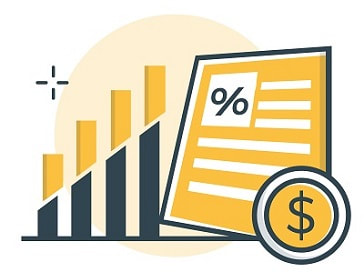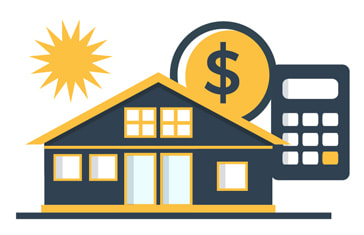Capital Gains Tax in New Zealand
Our guide looks at the basics of capital gains and taxes in New Zealand, how it applies to property, shares, crypto, professional selling and other assets, as well as must-know facts and frequently asked questions.
Updated 14 October 2023
Summary
Our guide covers:
Summary
- Every year, billions of dollars of capital gains are made, but almost none of it is taxed. This is because New Zealand does not have a capital gains tax (unlike most other countries).
- This means you can buy assets (homes, art, shares, classic cars, crypto and even racehorses etc.), sell them later at a profit and keep 100% of the money you make. This is very different from how income tax operates.
- The bright-line test, introduced in 2015 and modified in 2021 by the then Labour government, is arguably a form of capital gains tax but is limited in its application. We explain how it applies and what you'll need to pay if it covers you.
- We also explain the difference between taxes on profits and capital gains. We believe it can be confusing and we clarify the situation in plain English.
Our guide covers:
MoneyHub Founder Christopher Walsh shares his views:
|
"New Zealand does not have a capital gains tax by definition, although this guide has been designed to explain the 'Bright-line Test' and the differences between income tax and capital gains tax".
"In a nutshell, profits are taxed all the time in New Zealand, but capital gains are not taxed (outside of the bright-line tax scheme, which taxes specific capital gains as income)". "The general absence of a capital gains tax has led to a lot of political debate. For example, someone with a $1m investment property can sell it for $1.8m and make $800,000 untaxed, whereas someone earning the new minimum wage will pay up to 30% tax (if they work 48+ hours a week". "The lack of equality in the tax system is arguably a contributor to growing poverty levels throughout New Zealand. But for now, it's likely things will carry on as they always have done until a government addresses the issues in everyday New Zealand society. Whether that will ever happen remains anyone's guess". |
MoneyHub Founder
Christopher Walsh |
What is a "capital gain?"
A capital gain is the money you make when you sell an asset that has increased in value. For example, if you buy a house for $500,000 and sell it for $900,000, the capital gain is $400,000. A capital gain is not the total amount you receive but the profit.
What is a capital gains tax (CGT)?
A CGT is a tax on the capital gain. So, for example, if your profit from a house sale is $400,000 and there is a 30% capital gains tax, the capital gains tax paid would be $120,000. However, there is no everyday capital gains tax in New Zealand (outside of bright-line), so the full $400,000 can be banked, spent and/or re-invested in something else unless it falls under another taxable activity.
Does New Zealand have a specific capital gains tax?
No, but some capital gains are taxed as income or trading profits which arguably represents a form of capital gains tax. This guide explains what you need to know when it comes to the most popular asset classes.
Important: Income tax and capital gains tax are not the same thing
You may invest $1,000 into shares in The Warehouse and sell them later for $1,500, banking a $500 profit. This profit may be taxed or untaxed depending on your trading behaviour, but any tax charged will never be a capital gains tax.
For example, you may actively trade on the sharemarket and have your profits taxed as you're assessed as an active trader. This isn't a capital gains tax but rather standard income tax, given the IRD identifies your share trading as business activity and taxes it accordingly, just as they would if you were in any other business.
Dividends from shares are taxed, as the IRD identifies this money flow as income. But, again, it's not a capital gains tax.
Our guide to tax on investments has more details about what is (and what isn't) taxed.
For example, you may actively trade on the sharemarket and have your profits taxed as you're assessed as an active trader. This isn't a capital gains tax but rather standard income tax, given the IRD identifies your share trading as business activity and taxes it accordingly, just as they would if you were in any other business.
Dividends from shares are taxed, as the IRD identifies this money flow as income. But, again, it's not a capital gains tax.
Our guide to tax on investments has more details about what is (and what isn't) taxed.
Capital Gains Tax on Property
- The Bright-Line Property Rule (also known as the "bright-line test") is a law that determines if tax needs to be paid on profits made when a property is sold. It does not apply to properties acquired before 1 October 2015.
- Like a capital gains tax, the bright-line rule calculates the difference between what you bought and sold a property for. It then applies an income tax charge on qualifying homes.
- The bright-line rule won't catch you if you buy a home and own it for over ten years unless your principal business activity is buying and selling houses. If it is, the IRD will likely already be in touch. However, for most people, this isn't applicable.
How Does the Bright-Line Test Apply?
- Firstly, the test only applies to residential property bought and sold within ten years of the date of purchase. The test doesn't apply to any commercial property, retirement unit, or similar.
- One major exception is when the property is the owner's "main home". If this is the case, you can buy a home and move to another one within ten years; you won't fall under the bright-line rule.
- However, if you decide to rent out the home and later sell it within ten years, the bright-line tax will be levied proportionally depending on the amount of time it's been rented.
- Further to the 'main home' exception, an inherited property is also excluded.
Exceptions do exist.
The the IRD makes it clear that the bright-line property rule does not apply to:
- A sale of property that has been your main home, or
- Inherited property, or
- If you're the executor or administrator of a deceased estate.
More information: The best starting point is our dedicated bright-line test guide, which covers everything you need to know to form an understanding of how this quasi capital gains tax works.
Capital Gains Tax on Other (Non-Property) Assets
Beyond property and the bright-line test, we outline the current capital gains tax situation for KiwiSaver, funds, shares, crypto, Trade Me selling and high-end items sold for profit.
Capital Gains Tax on KiwiSaver, Managed Funds, Index Funds and PIE Funds
No tax is charged on capital gains your fund makes. Income generated (i.e. dividends and interest payments on cash invested) from KiwiSaver funds are taxed at the PIE rate (10.50%, 17.50% and 28%), depending on what the investor's annual income is.
Capital Gains Tax on Shares
There is no tax on the gains made from investing in New Zealand and most Australian shares. This keeps things simple for everyday New Zealanders with small portfolios in local companies who aren't actively trading. However, tax on foreign shares (e.g. US or UK based) over $50,000 is calculated under the FIF rules, which includes considering any capital gains. Our guide to tax on investments has more details and what you need to know.
Capital Gains Tax on Crypto Profits
There is no capital gains tax on crypto profits. That being said, the Inland Revenue has clarified the position on tax obligations relating to cryptocurrencies in a guideline here and Cryptoassets (ird.govt.nz). As crypto-assets evolve, Inland Revenue will progressively update these guidelines to provide people greater certainty on their compliance obligations.
More information: As per our discussions with Inland Revenue, if you have specific questions or ideas for updates, you can e-mail the IRD's crypto team to start a conversation.
More information: As per our discussions with Inland Revenue, if you have specific questions or ideas for updates, you can e-mail the IRD's crypto team to start a conversation.
Capital Gains Tax on Trade Me Profits
If you're regularly listing items on Trade Me and profiting on sales, the IRD will likely treat your activity as income-generating. This is because all the gains you make are taxed as income, not capital gains, just as they would be if you were running a physical shop or an online retailer. So again, there is no capital gains tax applied.
More information: Our guide to selling on Trade Me has more details.
More information: Our guide to selling on Trade Me has more details.
Capital Gains Tax on Selling Appreciating Assets (Land, Fine Wine, Paintings etc.)
If you own any high-value item and sell it later on for a profit, unless you're in the 'business' of trading it, the profit you make will be tax-free. This is because it won't be assessed as income tax, and with no capital gains tax, the profits are 100% yours to keep.
Frequently Asked Questions
How is capital gains tax calculated in New Zealand?
The closest thing to a specific tax is the bright-line test for property sales. If your property sale falls under this, you will pay tax based on your total income, with tax charged at your marginal rate (i.e. 10.50%, 17.50%, 30%, 33% or 39%).
For example, if you earn a salary of $100,000 and make a $400,000 profit from a house sale, you will pay up to 39% tax. This is because the $400,000 is treated as income, so your annual income would be $500,000. Anything income above $180,000 per year is taxed at 39%. So the bright-line tax charged would be:
For example, if you earn a salary of $100,000 and make a $400,000 profit from a house sale, you will pay up to 39% tax. This is because the $400,000 is treated as income, so your annual income would be $500,000. Anything income above $180,000 per year is taxed at 39%. So the bright-line tax charged would be:
- $80,000 X 33%: $26,400
- $320,000 X 39%: $124,800
- Total = $151,200, or 37.80% of the capital gain
How long do you have to live in a property to avoid capital gains tax in New Zealand?
If your home is your main residence and you continue to live in it, the bright-line tax does not apply. This means you won't be taxed on any capital gains when you come to sell it unless you live elsewhere (for example, overseas or in a second property which is now your primary home).
Is there capital gains tax on shares in New Zealand?
The IRD clarifies that if you buy and sell shares regularly, you may have to pay tax on the gains. However, this depends on where the shares are bought and your investor profile. Our guide to tax on investments has specific detail.






